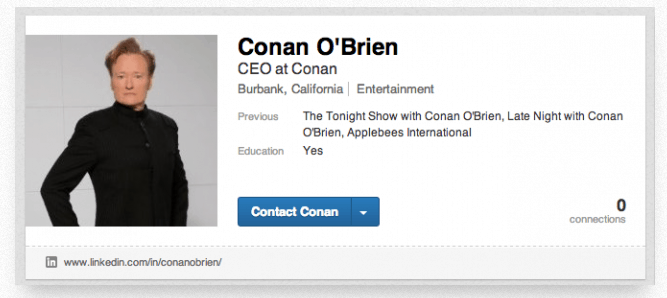
It happened quickly and without much thought. I hit send on my iPhone and my less-than-truthful text about my whereabouts careened through cyberspace.
I hadn’t been scheming of ways to pull the wool over my friend’s eyes. Actually, I was initially certain that I was, in fact, doing my friend a favor by withholding the truth—I was protecting her.
Later, after slowing down, things became clearer: I was trying to protect myself. I hadn’t thought about the situation long enough to realize that there was no need to be ashamed of the truth, or defend it with a lie. What was I protecting? Why in a moment of haste did I trust a lie more than the truth?
I’m not alone in my deception. According to research conducted by Dr. Anita Kelly, Professor of Psychology at Notre Dame, the average American lies roughly 11 times per week. And in a 2012 Wall Street Journal article based on his book The Honest Truth About Dishonesty: How We Lie to Everyone—Especially Ourselves, Dr. Dan Ariely discussed his research that found that almost everyone is occasionally dishonest.
While it’s comforting to know that I have company in my double-dealing, I am left wondering about the disconnection between my desire to be a truth-teller and my pattern of fibbing, even if just in small matters. How is it that I can give accent to the belief that the truth is the best option but my behavior often doesn’t fall in line? Is another, stronger, unacknowledged “truth” at work? The Apostle Paul thought so when he wrote about his “desire to do what is good, but I cannot carry it out” (Romans 7:18) and experiencing “another law at work” (Romans 7:23).
As Ariely wrote, “almost everyone is driven by two opposing motivations. On the one hand, we want to benefit from cheating and get as much money and glory as possible; on the other hand, we want to view ourselves as honest, honorable people.” As a result, our daily decisions to stretch or hold fast to the truth are made within the tension of these motivations.
One of the motivations behind my recent lie was what Ariely describes as the pursuit of “glory.” I was trying to preserve my reputation as a hardworking, scrupulous, good friend. Ironically, I was willing to lie to myself and others to protect those virtues.
When I drafted the untruthful text, alarms didn’t go off in my conscience. The severity of this lie must have been subthreshold—I could still believe I was honorable (my other motivation) and send the dishonest text.
But when we don’t tell the truth, we’re not honoring our own story or the story of others. Like any kind of avoidance, it can work for a moment in the short run, but in the long run, we miss out on inner congruence and the peace that often accompanies authenticity.
Worst of all, we light the match that begins burning the ties of true connection with ourselves and others. Hiding from ourselves and others in untruths, we don’t have the opportunity (or give others the opportunity) to grieve the truth, rejoice in the truth or hope in the truth, because we have not had the courage to go there.
But love casts out that need to hide, that fear of what the truth might cost us. When we catch glimpses of the love of Jesus—welcoming the disreputable, dining with swindlers and turning the religious system of His day on its head, we can sit with the truth without as much fear. We can bear that our reputations might be less than stellar because we are assured of our complete acceptability in Him—the offer of a seat at His table is still extended.
In the absence of that kind of love, the truth can be scary, so we often scramble for ways to preserve our relationships and save face. We get so used to operating in scramble-mode that even when people offer sincere love we are often moving too fast to notice and opt to scramble rather than rest.
Understanding, owning and resting in the truth is easier said than done. It might mean wading through some of the hard things that often accompany the truth: broken relationships; feelings of fear, jealousy, shame, selfishness, inadequacy.
It also often means deep breaths and exploration of one’s values and identity—but life is hurried and breaths are often shallow. It’s not until we slow down that we can see that the veneer of self/other protection has chips in it. It’s the layer underneath that says, “Beloved, you’re hiding. You’re scrambling to preserve an identity and losing yourself in the process. There is One who bled for you who loves you perfectly. In Him, you are fully acceptable; open your hands to the truth—it will set you free” (John 8:32).
Once we are honest with ourselves and God, we can be honest with others. Building friendships that can handle our deeper truths takes time. There are relationships that can bear a lot, people who will listen to our stories, hear our deeper truths and reflect love, but trial and error often serve as hard teachers in this discernment process.
Part of slowing down involves assessing what truthful information should be shared (if any) given the circumstances and individuals involved. And even when we’ve been let down in relationships, the knowledge that our deepest truths are safe, even being redeemed in God, is grounding beyond all else.
In her research on lying, Dr. Kelly found her study participants could successfully work toward decreasing lying, resulting in improvements in their physical and mental health as well as their personal/social relationships.
I want to have the courage to embrace truth. With deep breaths, assured of my seat at His table, I want to welcome truth and with it, my reputation as a perfectly loved, imperfect person.
Oh that we would slow down and know that perfect love of the Father and the beautifully imperfect love of so many in our lives enough that we are able to be brave and look truth, ourselves and others in the eyes.






















